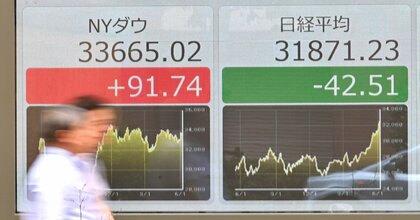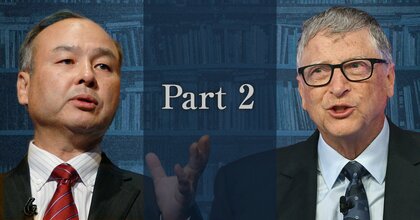Originally published in Japanese on April 9, 2024
Know your time horizon
With retirement investment planning, Japanese folks have a leg up. Americans habitually underestimate life expectancy and presume their time horizon ends at retirement. But you live in a society that values and fathoms longevity. The UN estimates the average Japanese man will reach age 81. Women? 87! And that is the average. Many will live longer, even much longer. If you are in your 60s and in good health, your time horizon could be 20 or 30 years. Longer still if you have a younger spouse or want to leave an inheritance.
Your time horizon is the total time your investments must work for you. For Japanese seniors that can easily mean at least 20 to 30 years of your portfolio supplementing the basic pension. Your goals and needs are not everyone’s. But, for many folks, retirement goals boil down to funding the life they want to lead in retirement. To do this for decades and avoid running out of money, you need equity-like growth. That means a substantial portion of your investments in stocks.
Yes, stocks for cash flow! You do not need me to tell you Japanese government bonds (JGBs) pay almost nothing. Owning some can help cushion a portfolio’s volatility and reduce the risk of making withdrawals in down markets. But the Bank of Japan has held rates so low for so long JGBs are highly unlikely to generate the total returns you need. You will need growth—which means stocks. Selling appreciated stock when necessary—what I call homegrown dividends—is a great way to fund living expenses.
Buy Japan. Buy global, too.
Many countries would put a geographic limitation on the NISA, granting tax benefits to domestic stocks only. The UK government is mulling this very tactic right now. But your government gave you more flexibility, granting the tax exemption to Japanese and international stocks. That is key! Use it.
Understand, I’m not down on Japanese stocks. Your big multinationals, industrial robotics manufacturers and tech giants are major players with bright futures. But Japan is just 6% of the money value of the developed world market. If you own Japan, Inc. only, then you have a blind spot to fully 94% of the developed world. Even bigger if you factor in emerging markets. This means missing opportunities elsewhere and being too exposed to local risks. Global investing gives the diversification you need to escape this trap.
To grasp this, consider why Western investors are so high on Japanese stocks right now: They see the Nikkei and TOPIX hitting their highest marks in over 30 years and nearing late-1989’s apex in price-only terms. Yet the unspoken truth: Japanese stocks are, only now after this big rally, back to levels of 35 years ago. Even including dividends, the TOPIX is up just 48% in that span. This pales compared to non-Japanese stocks’ more than 1,600% gain in yen since 1989. Investing globally reduced the lost decades’ impact by allowing you to seize huge opportunities in American tech, French luxury goods and other global hotspots.
Do not sweat currency swings
Owning internationally introduces a risk that a Japan-only portfolio excludes: currency swings. Lately, the weakening yen added to returns on non-Japanese stocks. You get the stock’s return plus the foreign currency’s appreciation relative to the yen. The yen is at its weakest level in decades now and has added hugely to foreign returns. For now, that continues! But a strengthening yen would be a headwind, subtracting from international returns.
Invest globally anyway. Currencies’ effect is temporary. Over long stretches currency ups and downs usually cancel out. That is no reason to avoid international stocks. If you are still concerned, hedge.
Your 2024 shopping list
So buy the world! Tech and tech-like consumer discretionary and interactive media stocks in America and Europe still look bright despite their recent rally. Large American energy firms look set to benefit from oil prices surprisingly drifting up this year. Own big growth stocks worldwide, but buy value too. European industrials and banks should benefit from a better-than-feared eurozone economy, especially if yield curves re-steepen. It is a big, beautiful world with a big, beautiful bull market in and outside Japan. Let it make your NISA flourish.
Ken Fisher is the Founder and Executive Chairman of Fisher Investments, a $200 billion global investment management firm spanning Asia, North America, Europe, Australasia, and the Middle East. He is the author of 11 books, including four New York Times Bestsellers, and writes customized columns in leading publications in 17 countries. He lives in Dallas, Texas. The views expressed here are his own.











